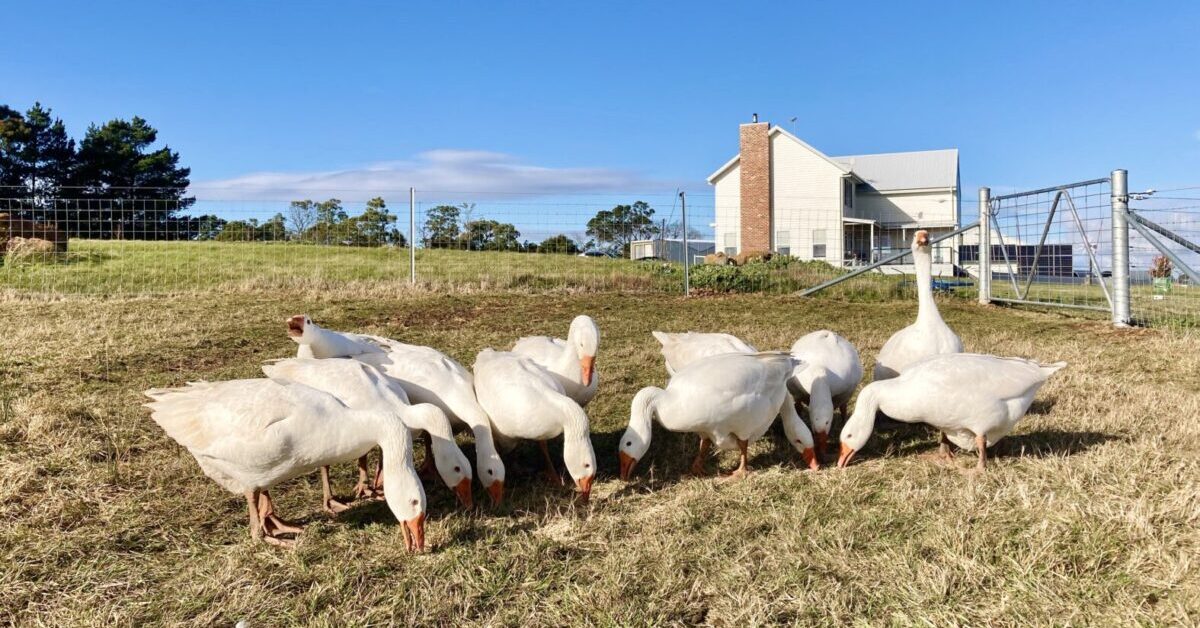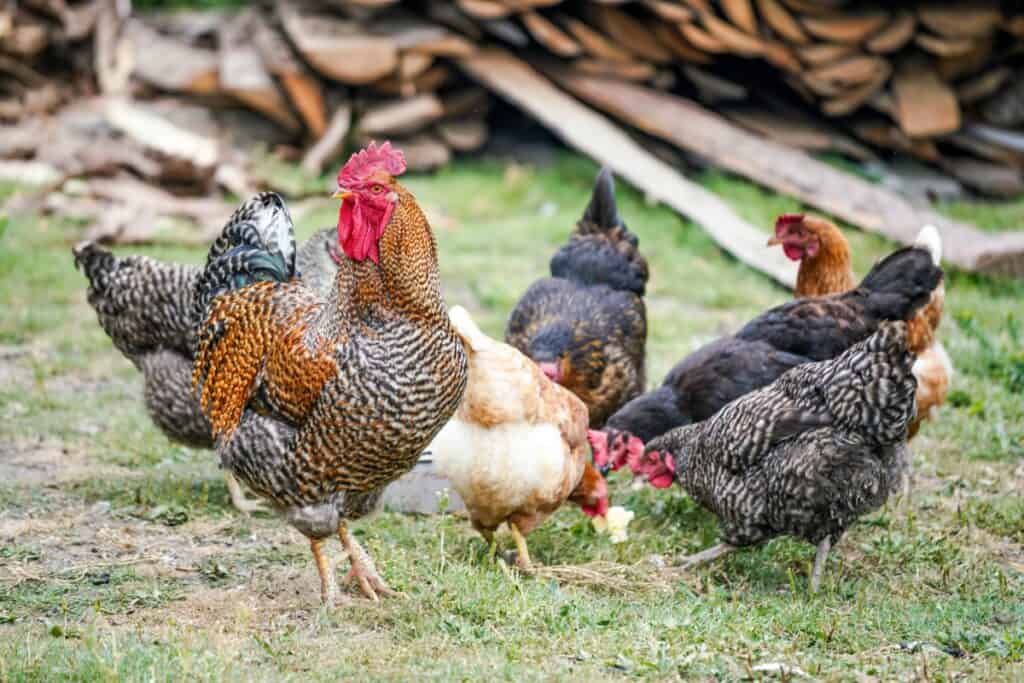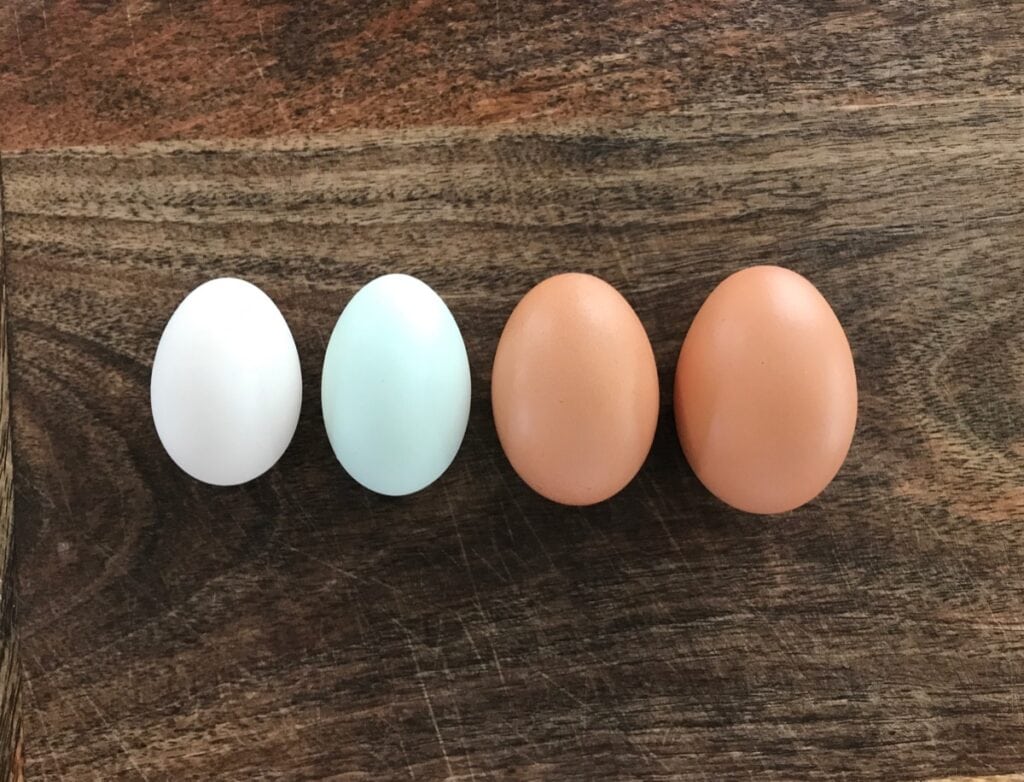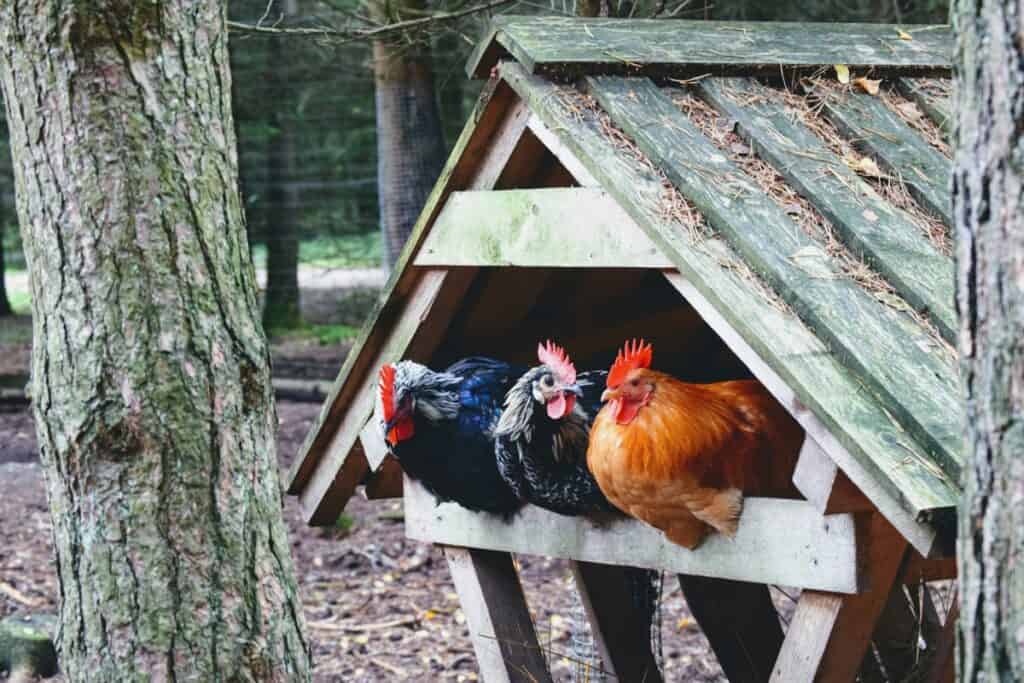Geese get a pretty bad wrap compared to other members of the farmyard. At the sheer mention of geese I’m told they’re loud, messy and downright mean. Strangers recount stories of being chased by a gaggle of honking geese, snapping at their ankles, and the trauma they still carry from the experience.
So why would anyone willingly invite these barnyard terrorists onto their farm?
Well, I did, and this is what I learnt from the experience.
The Noise!
It’s true, the honk of a goose, especially that of a gander, is loud. But no louder than the rooster crowing at sunrise or the lambs bleating for their mothers’. Nor is it as offensive as the squeal of a ticked off pig or the dogs bark. A farm is alive and creatures act on instinct and with that comes noise.
Remember geese are always honking or hissing for a reason. If you keep geese it may initially seem impossible to decipher what the ruckus is about. But over time you will learn to understand why your geese honk and hiss and begin to use it to your advantage.
A few key reasons why geese honk:
Excitement
Honking is often related directly to food, either its arrival or discovery.
If geese are hand feed they will honk at the familiar site of a bucket of grain and hiss once the grain is accessible to them; warning off threats while they eat. This is often directed at the farmer who delivered the food.
Geese, especially ganders, will also honk to alert the flock to food they have found and invite them to take part in the feast.
Seperation
Geese are flock birds and if an individual gets separated from the flock you will hear about it.
This instinct is remnant of wild geese calling out to the flock during migration as a way to keep tabs on each others location. Most people have heard the stories of sickly geese who can’t keep up with the flock being left behind, with a partner, to recuperate. Using superb navigational skills and distinct honks is what enables them to locate and reunite with their flock.
Territorial
Geese are very territorial by nature and their instinct is to protect the flock, therefore your visitors can expected honking on arrival…and departure. The benefit for you here is that they won’t only alert you to invited guest but also the unwanted ones, including those pesky nighttime predators looking for a meal.
The Mess!
This, I thought was exaggerated, I was wrong. Geese answer the call of nature every 12 minutes! Why? Because adult geese can consume up to 1.2kg (2.5 pounds) of grass a day resulting in 0.5kg of poop or, looking at it from the glass-half-full perspective…manure.
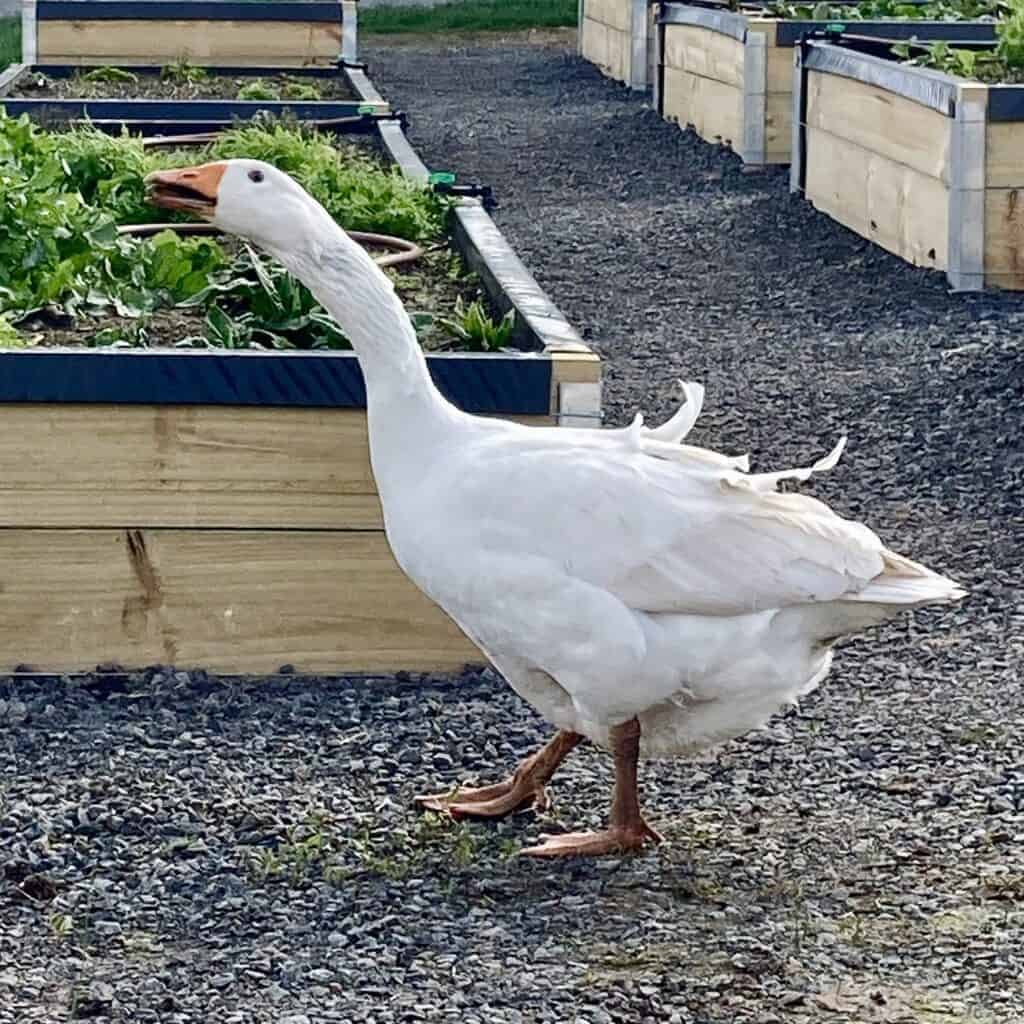
My geese are housed in the fenced orchard so what some may see as mess, I see as self-distributed organic fertiliser.
Goose poop is nutrient rich, containing lots of carbon, nitrogen and phosphorus making it a great fertiliser.
The other benefit here is the huge amount of grass the goose consumes in order to produce this quantity of poop.
Geese are one of the best species of livestock if you are looking for a lawn mower. Their eating habits mean the grass isn’t pulled out by the roots or eaten down to the soil, instead it is nicely snipped at an inch high.
Additionally, with the exception of very young trees, geese won’t eat bark so you can house them in areas that would otherwise be unsuitable for livestock that love to munch on trees.
They’re Mean
I’ve often referred to my geese as the most ungrateful animals on the farm. They honk at you to bring them food, they hiss at you to get away from their food. They honk at you to let them out of their pen, they hiss at you to get away from their pen.
Ungrateful…yes. Mean…no.
Geese are protective and ‘aggression’ levels can peak during breeding season (spring); which is not unusual across any livestock species. The gander will stand guard over the goose who is sitting on eggs. Hissing and snapping at anything that comes within a range deemed threatening.
It may frustrate and annoy us as their handlers but I can assure you that when Mr. Fox comes out to play the protective nature of the gander is not something you will hold against him.
If you find yourself confronted with an aggressive hissing goose that isn’t backing down, make yourself as large as you can, spreading your arms out like wings and hiss right on back. Don’t run or you’re likely to be chased home.
Geese on the homestead
Small-scale farms and homesteads usually can’t afford to set aside the space for something that doesn’t pull its weight when providing either to the land or the table.
These are the reason to keep geese at your homestead:
- Endless fertiliser
- A warning against predacious intruders
- Incredibly efficient lawn mowing
- Low feed cost compared to other poultry (95% of a goose diet is grass)
- Easy to herd and move around the farm
- Tasty rich eggs to feed the family
- Delicious meat for the table
- Feathers and down for keeping warm
- Smiles – geese are endlessly adorable to watch marching around the farm in single file
The goose is a heavy lifter on the homestead and not the total brute its reputation leads us to believe.
Share
